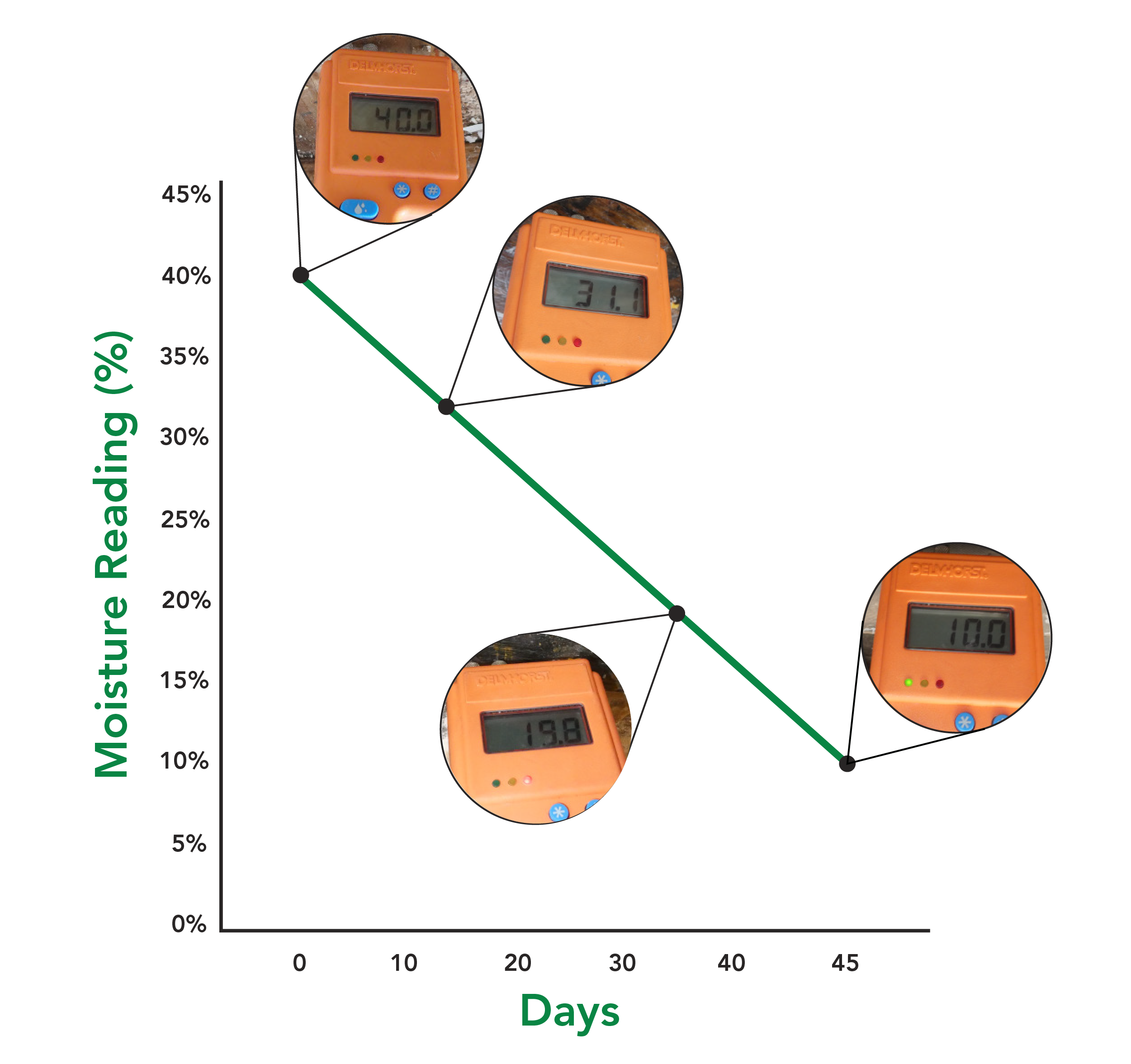Three Story Condo | Portland, OR
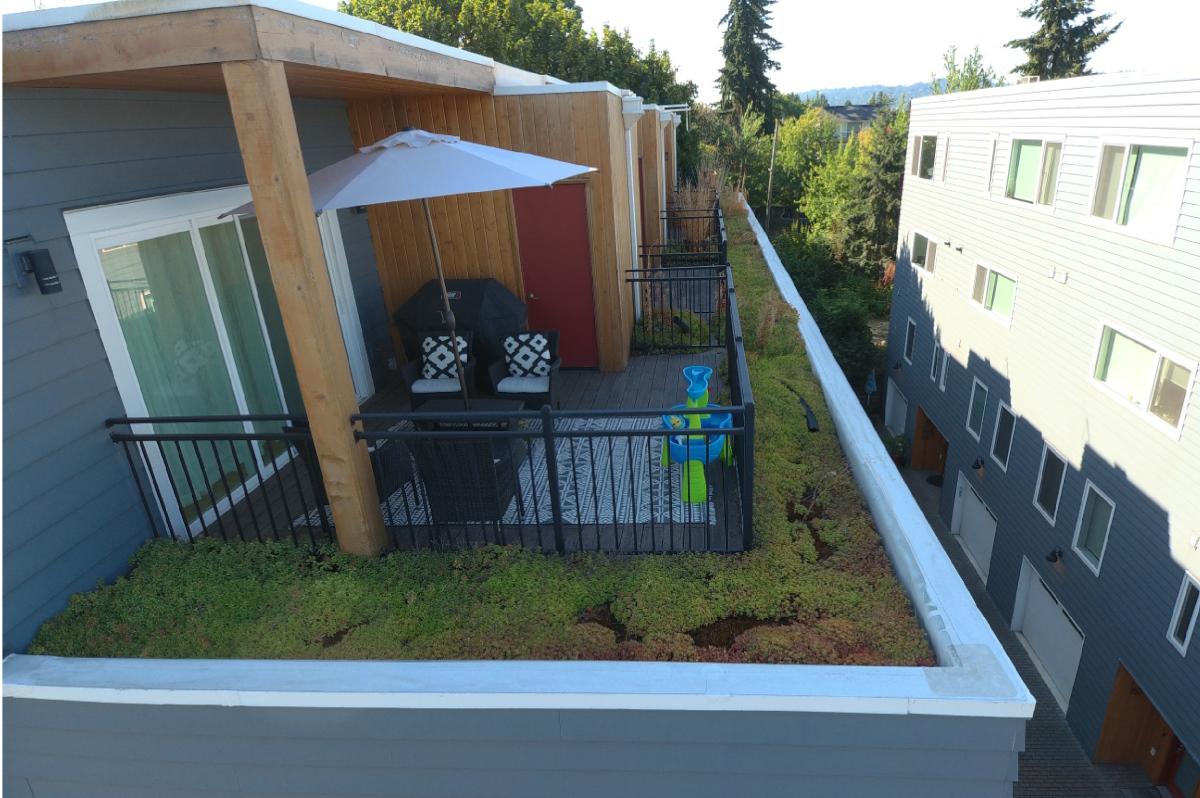 Overburdened roofing, consisting of a combination of 4-5” of growing medium, roof top decks and railings.
Overburdened roofing, consisting of a combination of 4-5” of growing medium, roof top decks and railings.
In Portland, Oregon, this concept was proven, using SlopeShield Plus SA air barrier and permeable vapor retarder with Self-Drying Technology, in an attempt to dry a wetted plywood substrate. Thereby salvaging the existing substrate materials, including the spray polyurethane foam, interior gypsum ceiling.
Existing Roofing Assembly
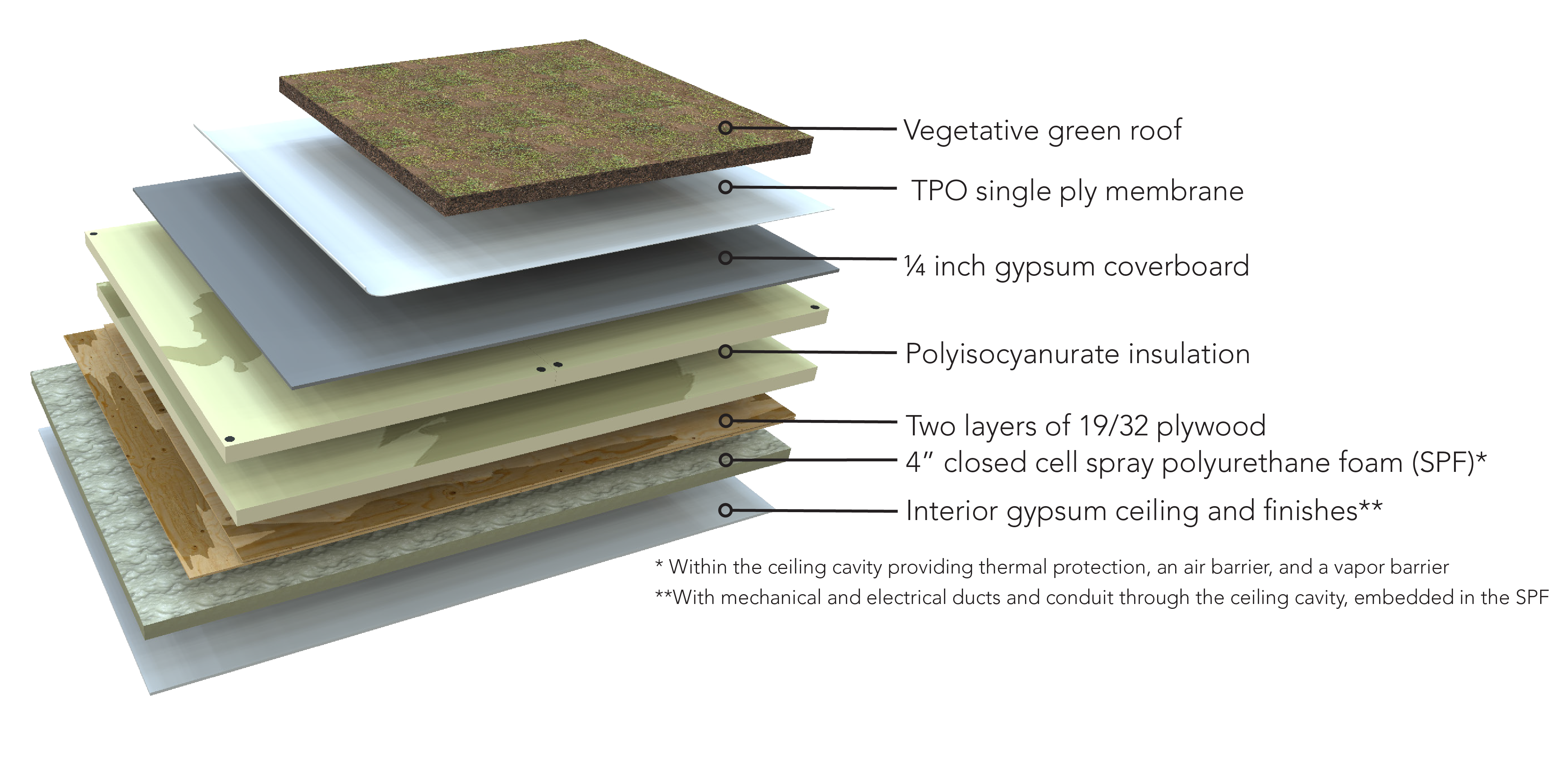
The Issue |
||
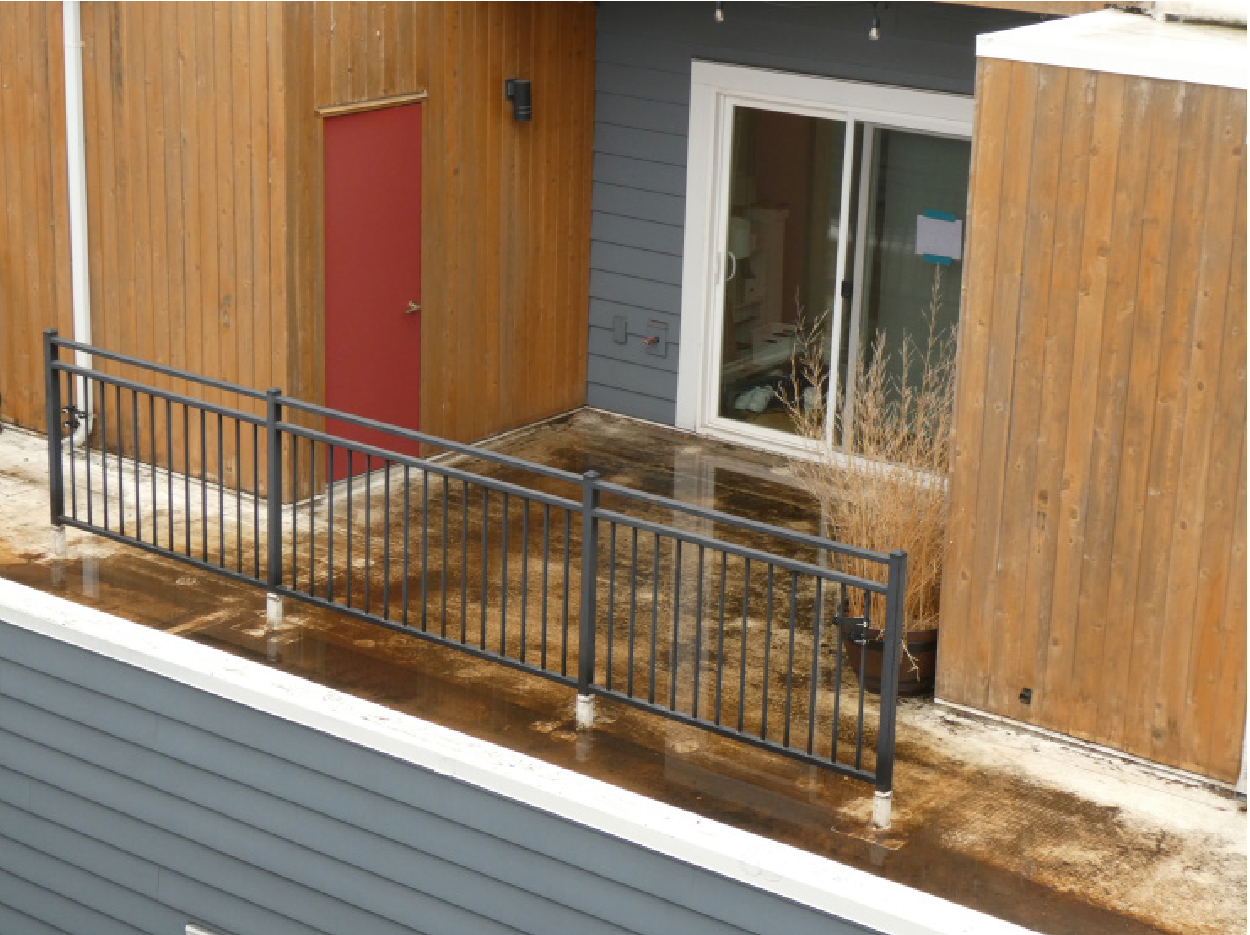 |
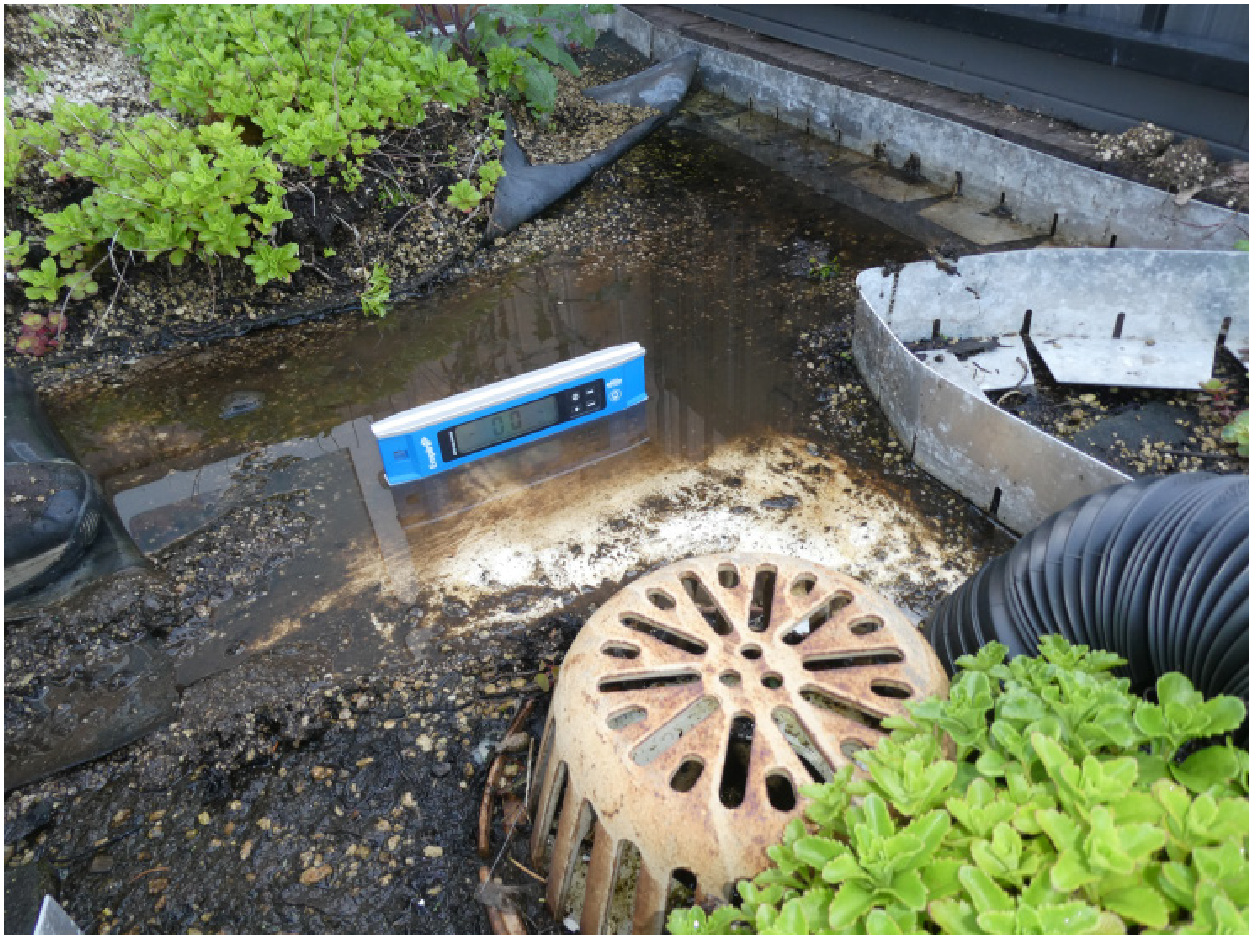 |
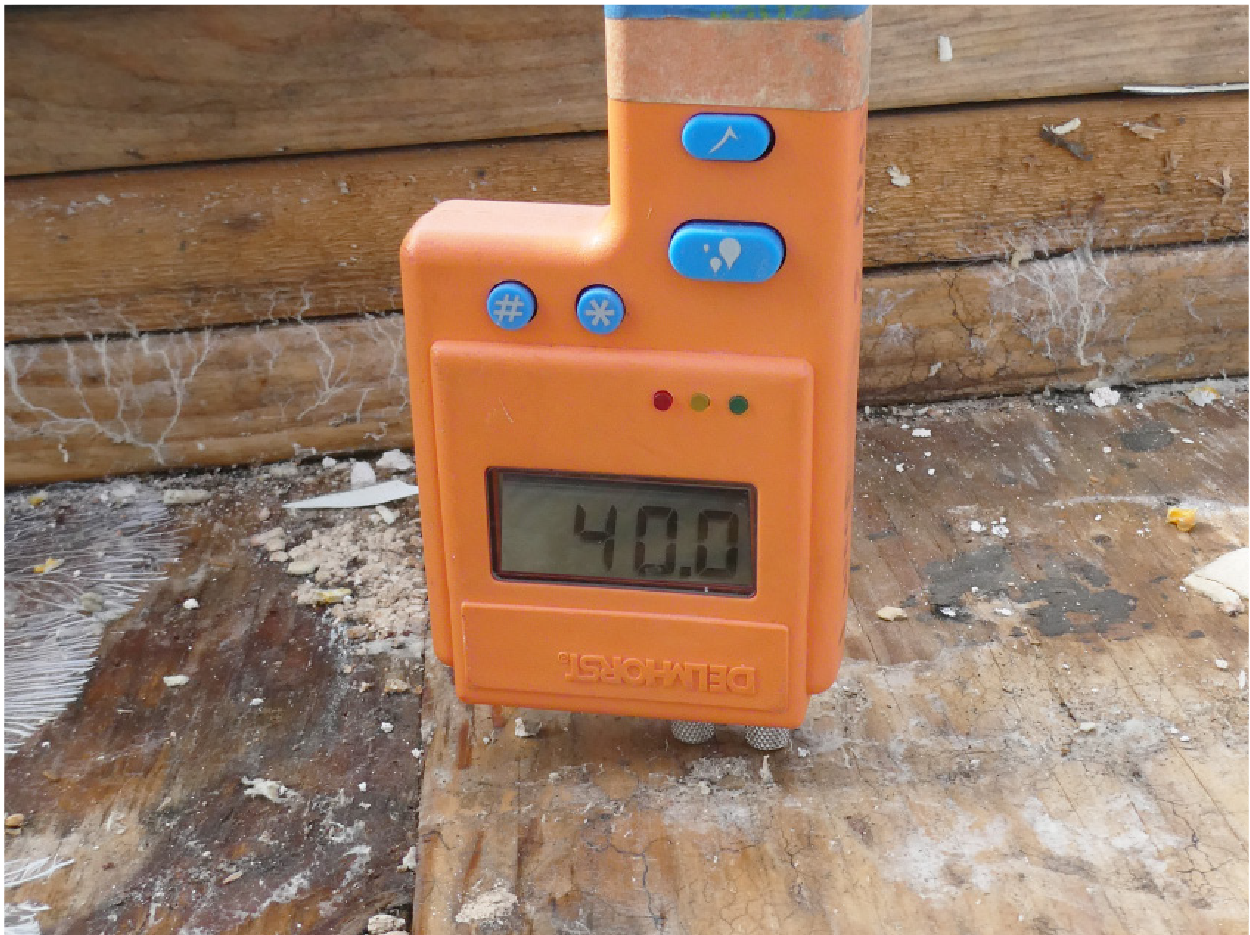 |
| Residents experienced interior water intrusion as a result of leakage through membrane laps and punctures, plus improperly sealed penetration flashings. | Membrane removal exposed wet coverboard, insulation, and plywood substrate materials. | The initial moisture meter readings, in the top plywood layer, indicated a moisture content exceeding 40%. |
The Problem
The Solution: SlopeShield Plus SA |
Remediating leaks through rooftop amenity spaces is an expensive process that requires total removal of the overburdened roofing, membrane, and saturated materials, including coverboard, insulation, roof deck, cavity insulation, and interior ceiling. This work is costly (high disposal fees, complete material replacement) and results in temporary resident displacement and revenue loss for the property owner.
Remedy and Findings
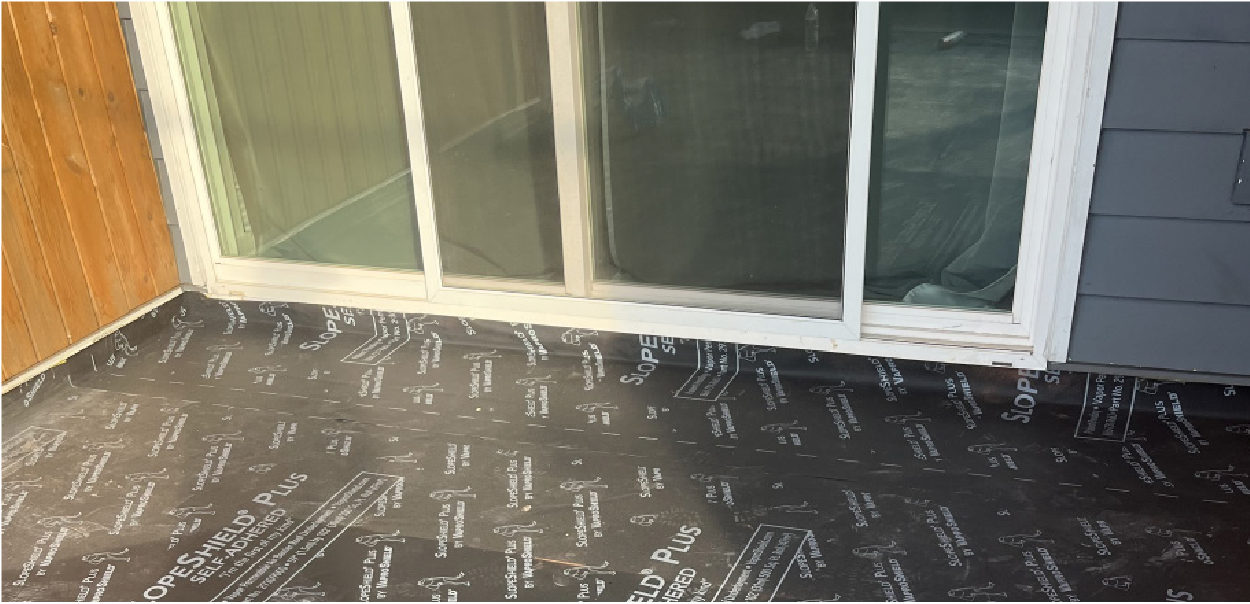
The existing materials were removed down to the plywood. The entire deck was covered in SlopeShield Plus SA, allowing the damp substrates to dry through upward moisture vapor diffusion.
The Results: Minimal Impact to Occupants and a New Roof
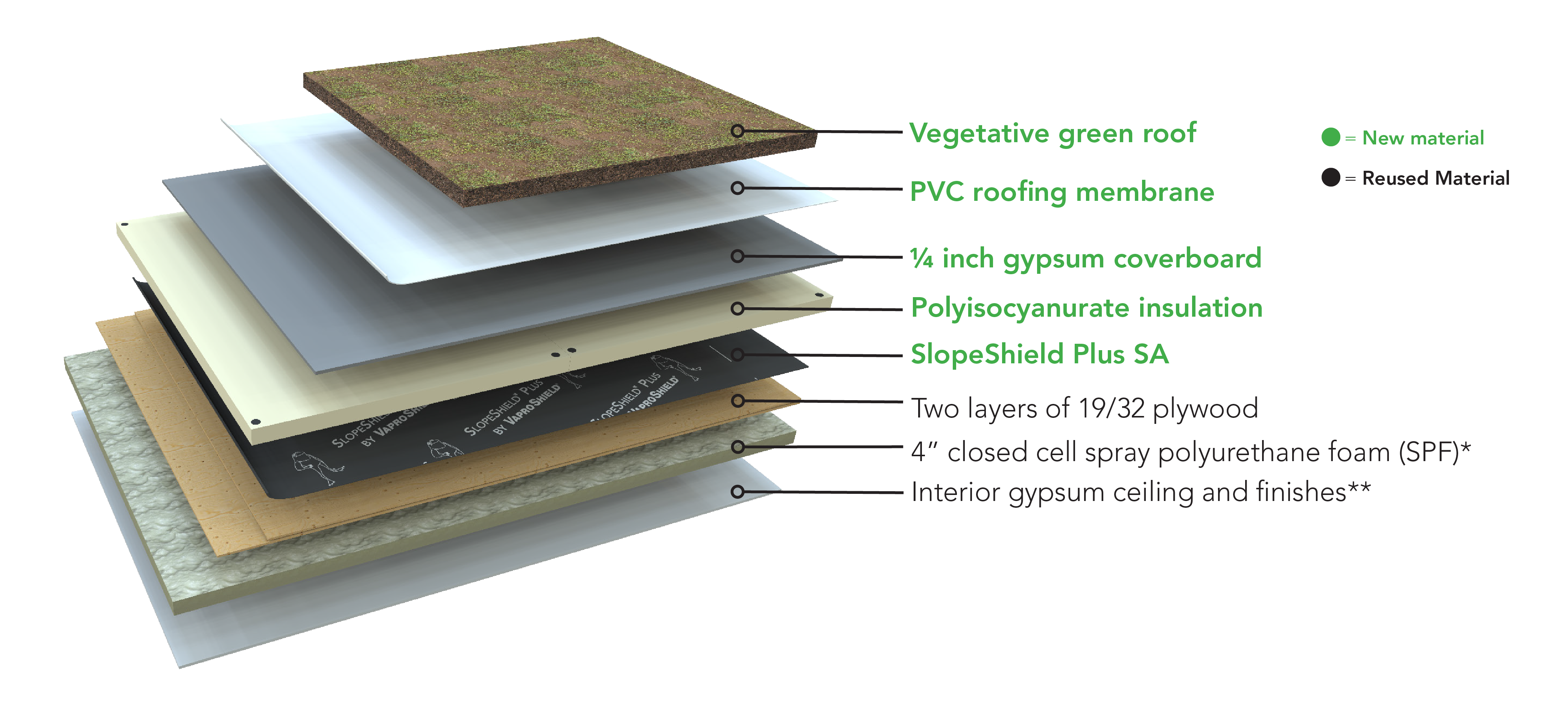
With a target moisture content at or below 15% it was determined the materials could be reused and the subsequent new roofing components (see above) could be installed.



